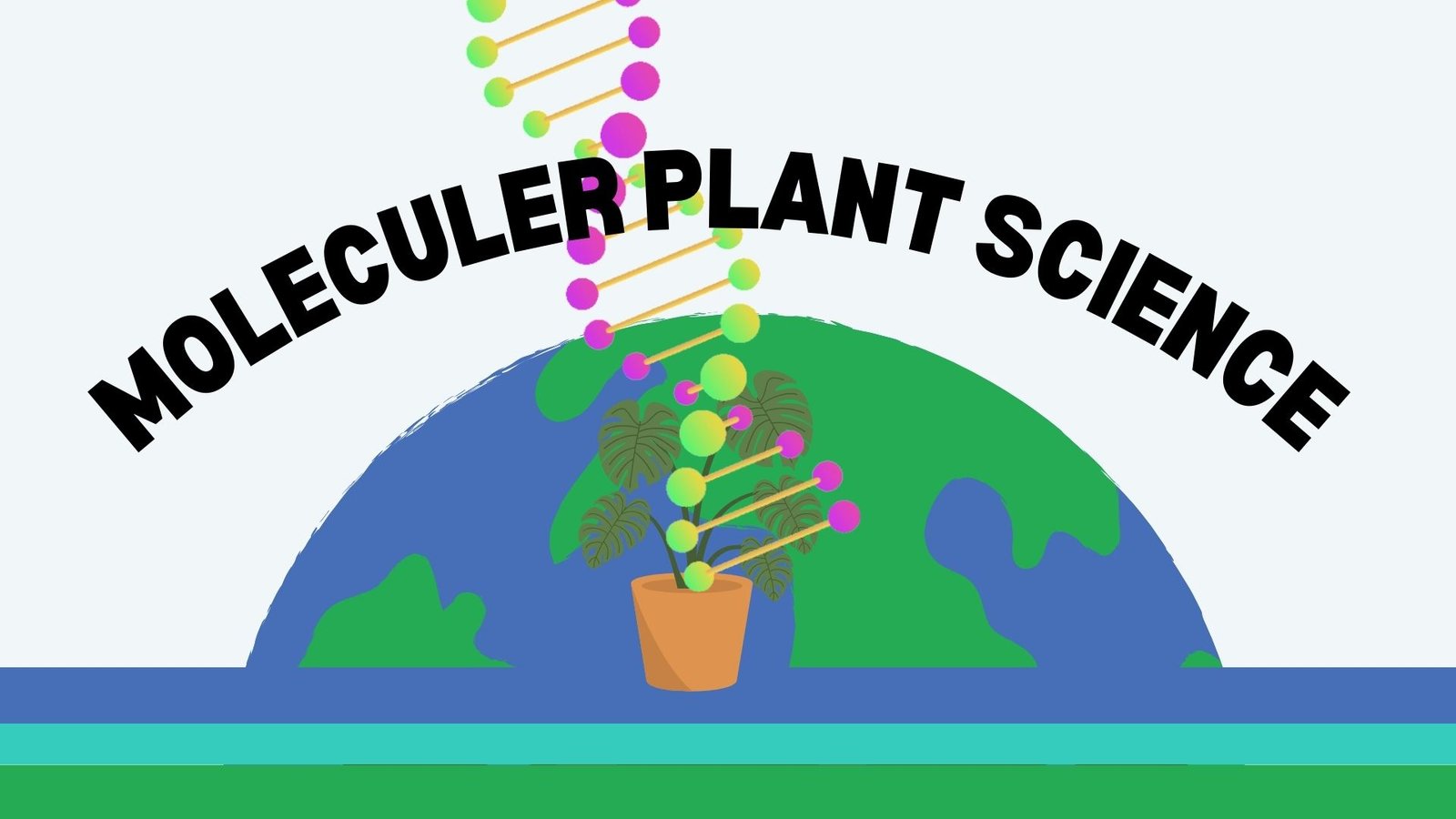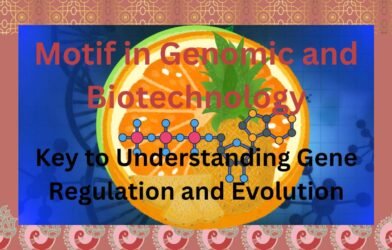
Introduction
Molecular plant science encompasses a multidisciplinary field that integrates molecular genetics, genomics, and biochemistry to enhance our understanding of plant biology. By examining the molecular mechanisms governing plant development and responses to environmental stimuli, researchers can uncover the intricate processes that define plant functioning. This field plays a vital role in confronting some of the most pressing global challenges, including food security and climate change, by equipping scientists and agricultural practitioners with the knowledge necessary to develop sustainable agricultural practices.
Molecular genetics, a cornerstone of molecular plant science, involves the study of genes and their functions within plants. It provides essential insights into the hereditary mechanisms that dictate traits such as yield, resistance to pests and diseases, and adaptability to varying climates. By identifying and manipulating specific genes, researchers can enhance desirable traits in crops through techniques like genetic engineering and marker-assisted selection.
Genomics, on the other hand, expands the knowledge base beyond individual genes to encompass the entire genome. Advances in genomics have facilitated comprehensive genome sequencing projects that unravel the genetic blueprints of various plant species. These insights allow for a better understanding of genetic diversity, and evolutionary biology, and inform breeding strategies aimed at improving crop resilience and productivity.
Lastly, biochemistry delves into the metabolic processes that occur within plants, exploring how biochemical pathways influence growth and development. By studying the interactions of enzymes, hormones, and signaling molecules, researchers can develop strategies to boost nutrient efficiency and enhance stress tolerance. The collective knowledge from these disciplines is essential for the innovation of agricultural practices that address the challenges posed by increasing populations, limited arable land, and climate change.
Breakthroughs in Plant Genomics
Recent advancements in plant genomics have profoundly transformed the agricultural landscape, offering new possibilities for genetic engineering and crop enhancement. One of the most significant developments is the completion of several large-scale genome sequencing projects. These initiatives have provided invaluable data, enabling scientists to identify key genes associated with plant traits, such as yield improvement and stress resistance. By deciphering the intricate genetic codes of various plant species, researchers are now equipped to tailor crops that better withstand environmental challenges.
CRISPR technology has emerged as a vital tool in plant genomics, revolutionizing gene editing techniques. This powerful system allows for precise alterations in a plant’s DNA, which can lead to the development of varieties that are more resilient to diseases and adverse conditions. For example, researchers have successfully employed CRISPR to enhance disease resistance in major crops like wheat and rice, marking significant progress toward achieving food security in the face of global challenges. The accessibility and versatility of CRISPR position it at the forefront of genetic innovations, enabling rapid prototyping of new traits in various plant species.
Furthermore, recent studies have shed light on the evolutionary dynamics within plant genomes, revealing how genetic diversity affects adaptability. These findings underscore the importance of preserving genetic variations as a means to bolster crop resilience. The implications of such research extend beyond mere survival; they pave the way for developing high-yield crops that can thrive in changing climates. The intersection of genomics and practical applications holds the key to the future of agriculture, promising to enhance productivity and sustainability in the sector.
Innovative Approaches in Plant Biotechnology
Recent years have witnessed significant progress in the field of plant biotechnology, driven by a convergence of scientific advancements and practical applications. One of the most prominent innovations is the development of transgenic plants, which involve the insertion of specific genes to introduce or enhance desirable traits. This biotechnological strategy has proven effective in improving crop resistance to diseases and pests, increasing yield, and developing tolerance to abiotic stresses such as drought and salinity. Notable examples include genetically modified crops like Bt cotton and Golden Rice, which provide crucial benefits in terms of yield and nutritional value. These crops demonstrate the potential of biotechnology to address global food security challenges.
Another significant innovation in plant biotechnology is metabolic engineering, which seeks to optimize and modify the metabolic pathways within plants. By altering these pathways, researchers can enhance the production of valuable secondary metabolites such as flavonoids, alkaloids, and amino acids. This approach not only improves the nutritional and medicinal qualities of crops but also contributes to environmental sustainability by reducing the need for chemical fertilizers and pesticides. Success stories from metabolic engineering exemplify how targeted enhancements can lead to more resilient and productive plant varieties.
Synthetic biology also plays a critical role in advancing plant biotechnology. This interdisciplinary field combines principles from biology, engineering, and computer science to design and construct new biological parts, devices, and systems. By utilizing synthetic biology techniques, researchers can create custom-designed plants with specific traits that may not occur naturally. For instance, engineered plants that can utilize nitrogen more efficiently could significantly reduce the environmental impact of fertilizers. The integration of synthetic biology in agricultural practices opens up exciting possibilities for sustainable farming and environmental conservation.

Future Directions and Challenges in Molecular Plant Science
As molecular plant science continues to evolve, it is imperative to consider the future directions and challenges that researchers will encounter. One of the most significant trends is the ethical implications surrounding genetic modifications. Advanced techniques such as CRISPR gene editing have opened new avenues for enhancing crop resistance and yield. However, these technologies also raise concerns about biodiversity, food safety, and the long-term effects on ecosystems. Consequently, researchers must engage in ongoing discussions with stakeholders, including farmers, consumers, and regulatory bodies, to foster a balanced approach to innovation.
Another critical issue is the need for comprehensive regulatory frameworks that address the complexities of genetically modified organisms (GMOs). Different countries and regions have varying regulations, which can hinder the global sharing of beneficial technologies. Establishing harmonized guidelines will facilitate research and commercial pathways while ensuring that safety and ethical standards are upheld. This regulatory alignment could dramatically influence the growth trajectory of molecular plant science, enabling researchers and industries to collaborate more effectively.
Interdisciplinary collaboration emerges as a crucial component in addressing challenges like climate resilience. Climate change poses a significant threat to agricultural systems, necessitating the development of crops that can withstand extreme weather conditions. Molecular plant scientists must partner with climatologists, soil scientists, and agronomists to design holistic strategies that incorporate advanced genetic techniques with sustainable agricultural practices. Such collaborative efforts could pave the way for innovative research areas, such as the exploration of plant microbiomes or the development of bioinformatics tools for better data analysis.
In conclusion, the future of molecular plant science is filled with opportunities and challenges that require a multi-faceted approach. By addressing ethical concerns, establishing robust regulatory frameworks, and fostering interdisciplinary collaboration, the field can advance and contribute significantly to global food security and environmental sustainability.







